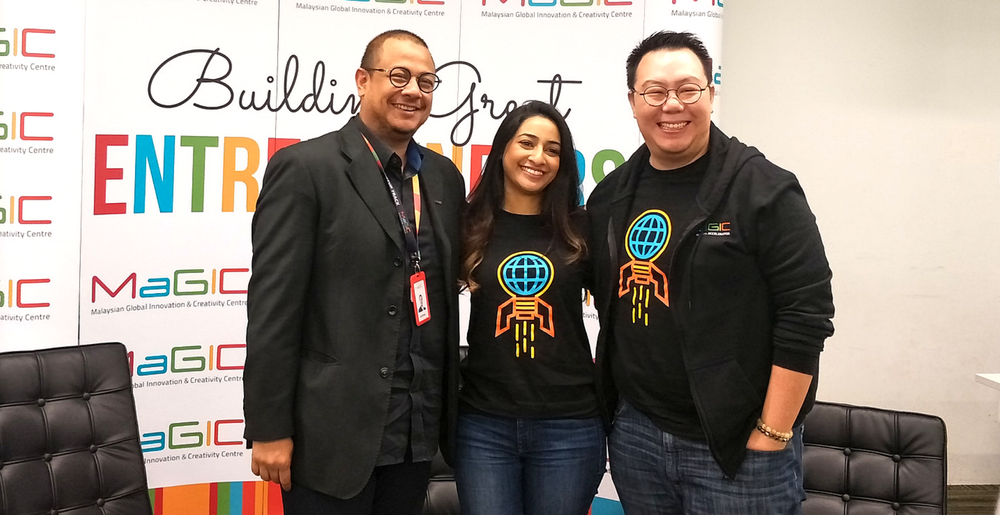When startup culture began to grip the world, it was all built on the back of consumer-based businesses—Uber, Airbnb, Facebook, just to name a few.
Even Malaysia followed suit in this trend, to eventually produce big names such as KFIT (now Fave), Fashion Valet, Grab, etc.
But inklings of conversations began emerging in 2013 about a change. While the idea of spearheading your own startup that would impact the masses is still the general image of a startup founder, international players of the scene began noting that there was a campaign towards the less ‘sexy’ startups.
These are B2B startups, that help with stuff like streamlining sales systems, or supply chains, etc. Practical, boring startups that would lull the masses into a snoozefest.
While MaGIC has rebranded their accelerator program into something that is more global-orientated, their startup intakes seemed to be still steered towards B2Cs.
After all, out of the global startups that they have in their inaugural Global Accelerator Programme (GAP), 43% of them are geared towards lifestyle, while 13% are geared towards what they’ve labelled as a ‘Creative’ industry.
We posited this inquiry to MaGIC’s Johnathan Lee and Ashran Dato’ Ghazi, who instead asked us to look at things from a different angle.
To them, it’s about exposure.
To Ashran, matured players tend to look at things from a bigger, corporate scale. These are startups that have done their time in the ecosystem pit, and have learned from it as a result.
Meanwhile, the startups that they take in might not necessarily have the scope to imagine their business on a similar scale, but a change in mindset is what MaGIC hopes to cultivate.
“Part of the reason that why we’re doing strong engagements with corporations and sector players is not so much from the hypothesis that it should be B2B businesses per se. It is to ensure that we (the startup scene) is also exposed to the youth market segment that becomes our main audience.”
“I think historically, being in the ecosystem for quite some time and joining MaGIC, and joining so many pitch events, the landscape has always been looking at the same old things out there. And there needs to be a shift in terms of raising more startups.”
– Ashran Dato’ Ghazi
Neither Ashran nor Johnathan look at startups as either ‘sexy’ or ‘unsexy’, and instead see them more as ‘exposed’ or ‘unexposed’. It’s all about exposing fledgling startup founders to the problems in the industry.
“We talk about problem solving in startup circles, and sometimes they don’t have the exposure of enough pipelines of problems that is visible to them. You can only solve things that are visible to you,” said Ashran.
The team hopes to deliberately expose entrepreneurs in the scene to larger scale problems, instead of relying on chance that the right person is exposed to the same problems organically.
“There could be talent that could think of cool ways to solve that problem, but for some reason they’re not in that space. And that kind of activation needs to be curated.”
– Ashran Dato’ Ghazi.
“You give some fraction of randomness to get those things to come in, but there needs some element of structure and chaos. If you leave chaos freely, then it just becomes chaos.”
Johnathan piped in to say that, “If you want to make sense of the chaos and try to align some of it into positive change, then I think that’s what all organisations—corporates and startups—that’s what we’re trying to achieve.”
Even in our local stratosphere, we see a lot of startups that started out geared towards consumers changing their tune later on.
Katsana, Supahands, Picha Project, just to name a few who have rethought their concept to be larger and more scalable by reaching out to businesses and corporations instead of focusing on individual consumers.
When it comes to corporate collaborations, MaGIC wants startups and corporates to look at problems to solve together.

“We still want to give that flexibility of whatever perspectives that people see,” said Ashran.
To him, it is very possible for a symbiotic relationship to develop between corporates and startups.
For example, a startup may have found a better way of delivering a particular experience to a sector, but may have difficulties going to market. Meanwhile, a corporation in that sector is trying to hack that very same problem.
For Johnathan, it’s not about helping startups build solutions, because the solutions already exist.
“It’s a matter of bridging that, and the success rate becomes higher. Because at the end of the day, the whole purpose of graduation day is so that they can raise financing. Investors in SEA generally want to see traction. And we build this traction by ensuring that startups can get access to investors.”
“There’s the B2B model, but there’s also B2B2C where they use the business network to get access to customers. So the success rate for investment would be higher because they’ve already got this traction built.”
According to Johnathan, corporates in Southeast Asia have been engaging MaGIC.
“They come to us partly because they know it’s important for them to now work with startups, instead of sitting there waiting to be disrupted. And we’re helping them to close the gap between the corporate world.”
“That is not just a Malaysian trend, it’s a global trend. So if you go to USA today, all they talk about is corporate innovation and how they move.”
While there is merit to following global and economic trends to stay ahead, MaGIC is forging their own path to shape the ecosystem—by still taking up the younger stage of startups like in their previous cohorts.













